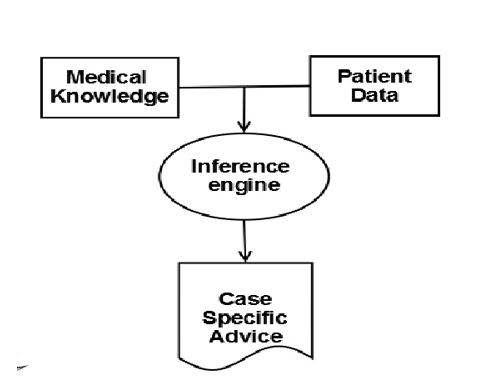ARTIFICIAL INTELLIGENCE AT THE DOCTOR’S CLINIC
November 23, 2017
Technology leaders like Google, Amazon, Microsoft, and Apple have recently built personal assistants that use Artificial Intelligence to deliver customized search results. This trend is now gaining momentum in healthcare where the doctors expect the computer to assist them in treating their patients when in clinic. In the current times, besides prescribing medicines, doctors have to keep themselves updated on the evolving guidelines and drug discoveries. Doctors today have insufficient time to devote for the diagnosis and treatment of their patients. What they need is a system that can improve patient outcomes in a limited time. A Real-time system at doctor’s clinic or point of care that prompts the prescription is of invaluable support. Such a system is commonly called a Clinical Decision Support System (CDSS).

Source: http://www.inferscience.com/promise-clinician-triggered-clinical-decision-support-solutions/
Technology does not want to substitute a doctor by a computer, rather it wants to assist them in their own decision making. Data Mining is conducted to examine patient’s medical history and his presenting physical findings. Specific case information like Patient’s anthropometric data, laboratory data, current medication and lifestyle is also considered. This is combined with the knowledge base of the system. The data sources of knowledge base include Epidemiological/Surveillance data, Statistical data and Literature. Interfacing with the Electronic Medical Record of the patients is also helpful. As per the functionality of the CDSS it generates diagnosis, recommends treatment or predicts prognosis. Though doses of medicines, drug interactions can be prompted but a balance has to be maintained to avoid too many irrelevant alerts and reminders.

Source: https://onlineacademiccommunity.uvic.ca/betlab/2017/03/19/components-of-cdss/
The most important aspect is reliance on the knowledge embeded in the CDS system itself. The knowledge of the system must be able to generate meaningful insights. It can use Expert Rule Based Systems. The use of Machine Learning and Adaptive Computing allows the computer to learn from patterns in the clinical data. Computer thus helps in avoidance of medical errors in prescription and medical dosing.
Though there are several products in market, few vendors dominate the market as they have rich and expanding databases. The leading companies include Cerner, First Databank and Medispan. (Ref. https://ehrintelligence.com/news/top-clinical-decision-support-system-cdss-companies-by-ambulatory-inpatient). With rise in technological innovation, competition and M&A activities in the industry many local and regional vendors are offering customized products. EHR companies such as Allscripts and Athena have opened their APIs to allow outside developers to harness the patient data contained in a patient chart. As medicine is becoming more complex and a lot of thoughts are emerging, implementing a robust system will surely decrease the burden of disease.

 English | EN
English | EN 